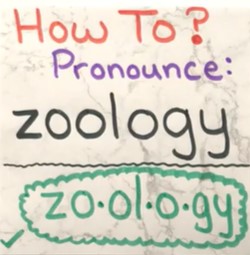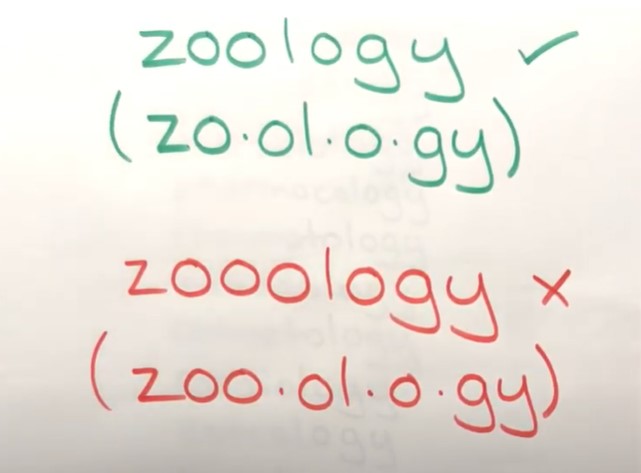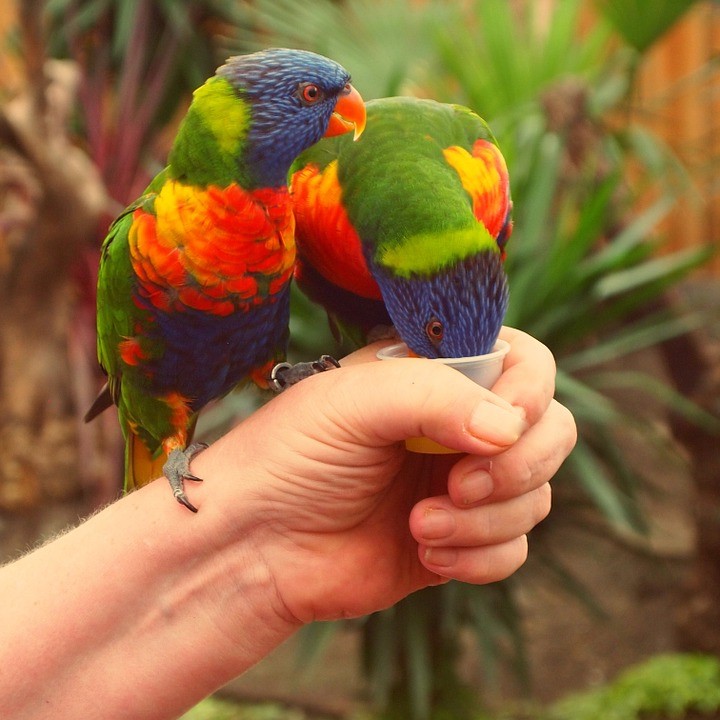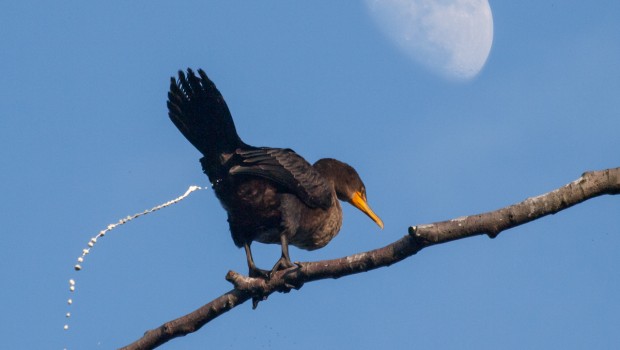The word zoology is one of the most mispronounced words in the English language, even for Zoologists.
To make matters worse, the common pronunciation differs depending on which country you’re from.
For example, if you’re an American and call it Zoo-ology (like, Animal Zoo, and ology as in biology) then you’re wrong.
If you’re British, or Australian, then you’re oddly more correct, as this is more the rule than the exception.
However, the most correct pronunciation based on the spelling is Zo-ology, where “Zo” rhymes with “No”. Try saying “No-ology”, then replacing the “N” sound with a “Z” sound.

Not convinced?
Let’s dig a little deeper into the zoology pronunciation…
Zoology pronunciation according to the Oxford English Dictionary
The Oxford English Dictionary is widely recognised as one of the most credible and authoritative sources for the English language, both for thoroughness and historical merit.
You would therefore hope it gives us an answer on how to pronounce zoology, but you’re mistaken.
Hop over to the Oxford English Dictionary page on Zoology, and locate the box How is the noun zoology pronounced?
You will find four variations. Two British English, and two U.S. English. Each has a “play” button – try them all, then come back here.
For reference, the four pronunciations are as follows:
- British English
- zoo-OL-uh-jee
- zoh-OL-uh-jee
- U.S. English
- zoo-AH-luh-jee
- zoh-AH-luh-jee
I expect this has left you even more confused?
It did for me.
How do Zoology students pronounce Zoology?
This may differ from region to region, but this is a quote from a Zoology graduate:
As a Zoology graduate, I know nobody who pronounces it zo-ology, and I know a great many who pronounce it zoo-ology.
What do the Americans say about the pronunciation of Zoology?
I scouted YouTube and found the following video from English Speaking Practice to be quite good.
The video explains the different pronunciations (or mispronunciations) of zoology, comparing the word Zoology to other words ending in “ology” such as Biology, Anthropology, Epidemiology, and so forth.
You will note at the beginning of the video, the speaker raises the point the pronunciation zoo-ology would require another o.
However, he fails to mention the point no word in the English language is spelt with three o’s.
That would be, just, odd.
(No, “Wooo” is not a proper word.)
The Merriam-Webster dictionary defines Zoology as “a branch of biology concerned with the classification and vital phenomena of animals”. This clarifies the “ology” part, and we all know the word “Zoo” is associated with animals, which is why Zoo-ology sounds more natural, and why it’s easy to understand why most Zoologists call it such.
If you took the time to watch the above video, you will now be convinced Zo-ology is the correct pronunciation, which is technically correct given the number of o’s.
But I’m sure you know the English language is rife with oddities. Should you care?
I don’t think so.
Especially if you’re British or Australian.
Why you should pronounce Zoology as Zoo-ology
Many words in the English language are pronounced differently to how they appear on paper.
Let’s start with an example:
- Worcester Sauce.
Try asking for that in a British pub. Worchester sauce is pronounced “WUSS-tuh-sheer sauce”, after the English town it hails from.
Many Brits shorten Worchester Sauce further to be “WUSS-tuh sauce”. This is incorrect, but still perfectly acceptable and understood (unless you’re a die-hard Olde English teacher).
If you ask for WUSS-tuh sauce in a British pub, you’ll get exactly the sauce you want, without any confusion or baffled expressions.
Try it.
How about Quinoa?
Quinoia is not pronounced “Quin-wa” like many would think. It’s pronounced “Keen-wa”.
Find any other word in the English language starting with “Qu” which is pronounced “Kee”. The Queen of England, God bless her, would turn in her grave to hear herself called the Kee-een of England.
When I moved from the UK to Australia I asked a girl out on a date to the cinema. She corrected my pronunciation, which made me (1) feel idiotic, and (2) baffled I had pronounced the word incorrectly for the first 30 years of my life.
I pronounced it Cine-mar, and not Cine-ma.
How could I get this wrong?
I later came to the realisation (while on the phone to my dear mother) the British and Australian pronunciations were different. Credit to Australia for having the more technically correct pronunciation, but the English pronunciation ends in mar. At least in the region of England I grew up.
You can therefore conclude, the pronunciation of Zoology can be a personal preference, or regional preference. Therefore, you may pronounce Zoology the way which sounds better to you.
Personally I prefer Zoo-ology. It sounds more natural in the spoken word.
You can pronounce it Zo-ology, and I will completely understand you, and won’t be offended in any way.
I’m glad we don’t write it “zooology”. If we did, it would likely be the most misspelt word in the English language.
How do you pronounce Zoology, and why?




